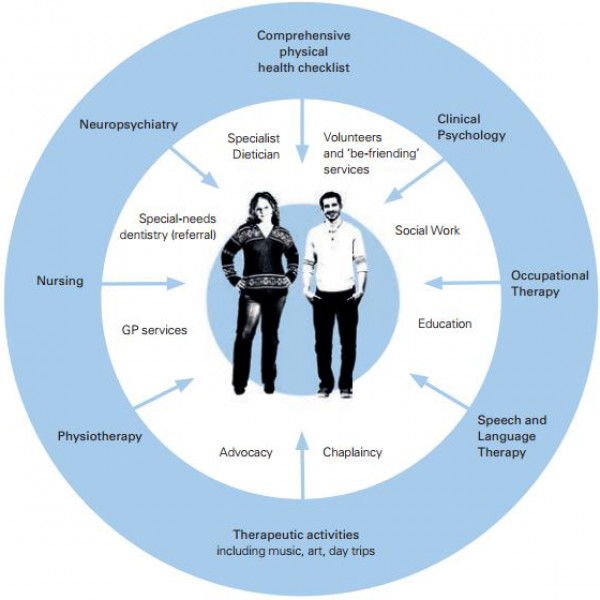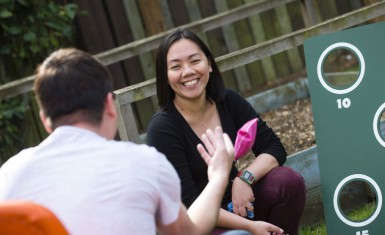Our model of care
We manage physical healthcare and the most complex neuropsychiatric needs from our central campus. With a service of more than 200 beds, from medium secure through to community-supported transitional living, we can tailor the environment and therapy to each patients' needs.
Our model of care focuses on meeting the complex, highly specialised needs of patients and takes forward our strategy to deliver progressive, world-class and holistic care. Patients benefit from tailored therapies and interventions, delivered by the most extensive neurobehavioural inter-disciplinary team.
In addition each patient has access to extensive social, vocational and voluntary opportunities within the charity which allows them to test their recovery, supplement their cognitive and daily-living skills and support physical improvement. These include:
• A vocational pathway offering supported workshops
• Work placements, including office and retail-based roles at Workbridge
• ‘Outstanding’ rated OFSTED education and learning sets
• Local voluntary work
 PICU and Acute Bed Availability
PICU and Acute Bed Availability







